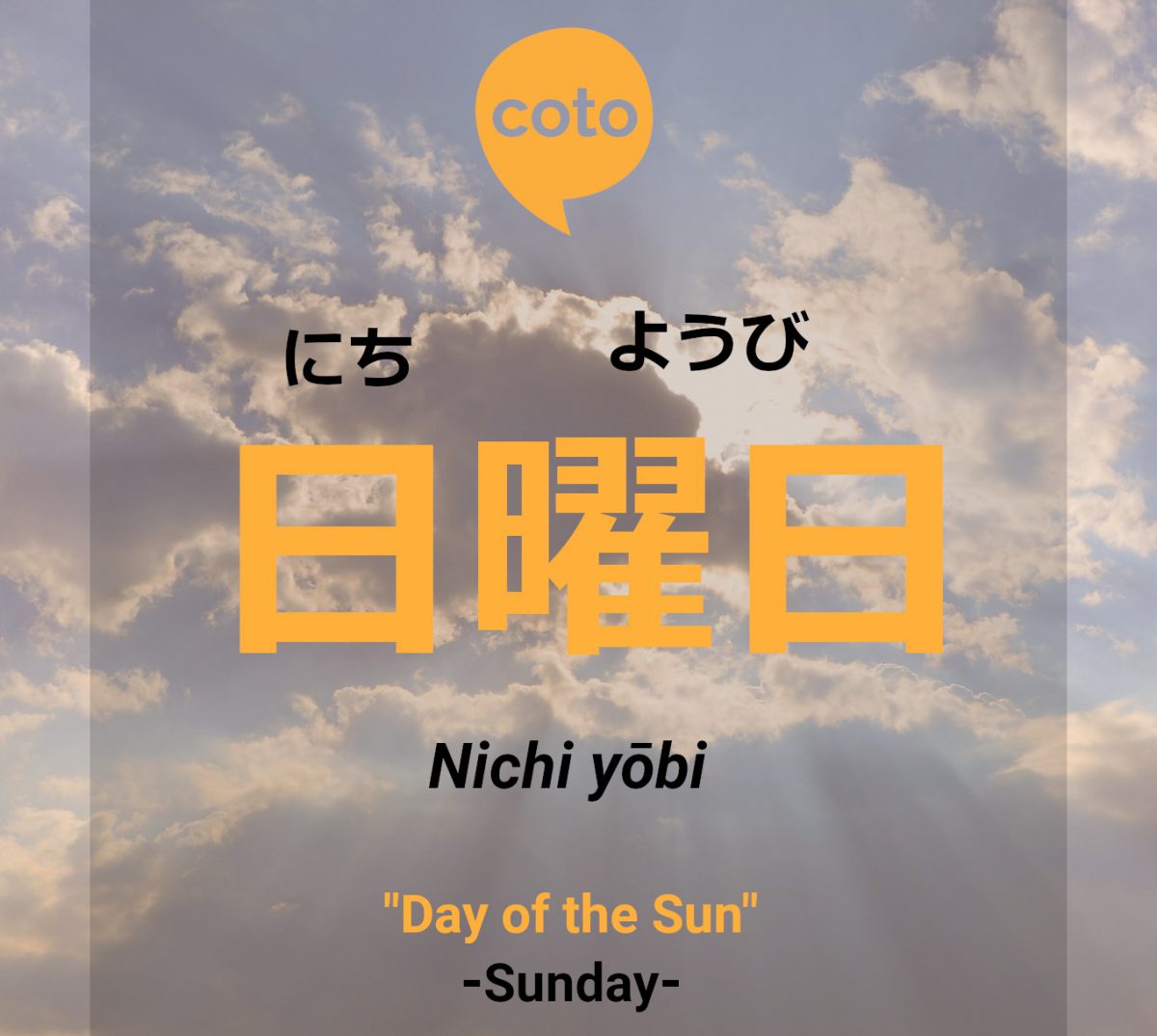Back to blog
Talking about the Days of the Week in Japanese

Time marches on in Japan as it does in the rest of the world. Knowing how to ask the day of the week or help somebody who’s forgotten can be very useful. It’s also a great start to beginner kanji!
First things first, what are the days of the week? Japanese is like English in that all the days end with the same suffix. While in English, this is “__day”, in Japanese this is “__曜日ようび” (yōbi) which means “day of the week”. Then it’s a matter of attaching the appropriate prefix to get the day you want.
Sunday
- Prefix: 日 (nichi)
- Meaning: Sun or day
- Note: here, the first “nichi” means sun while the one at the end is pronounced “bi” and means day.
Monday
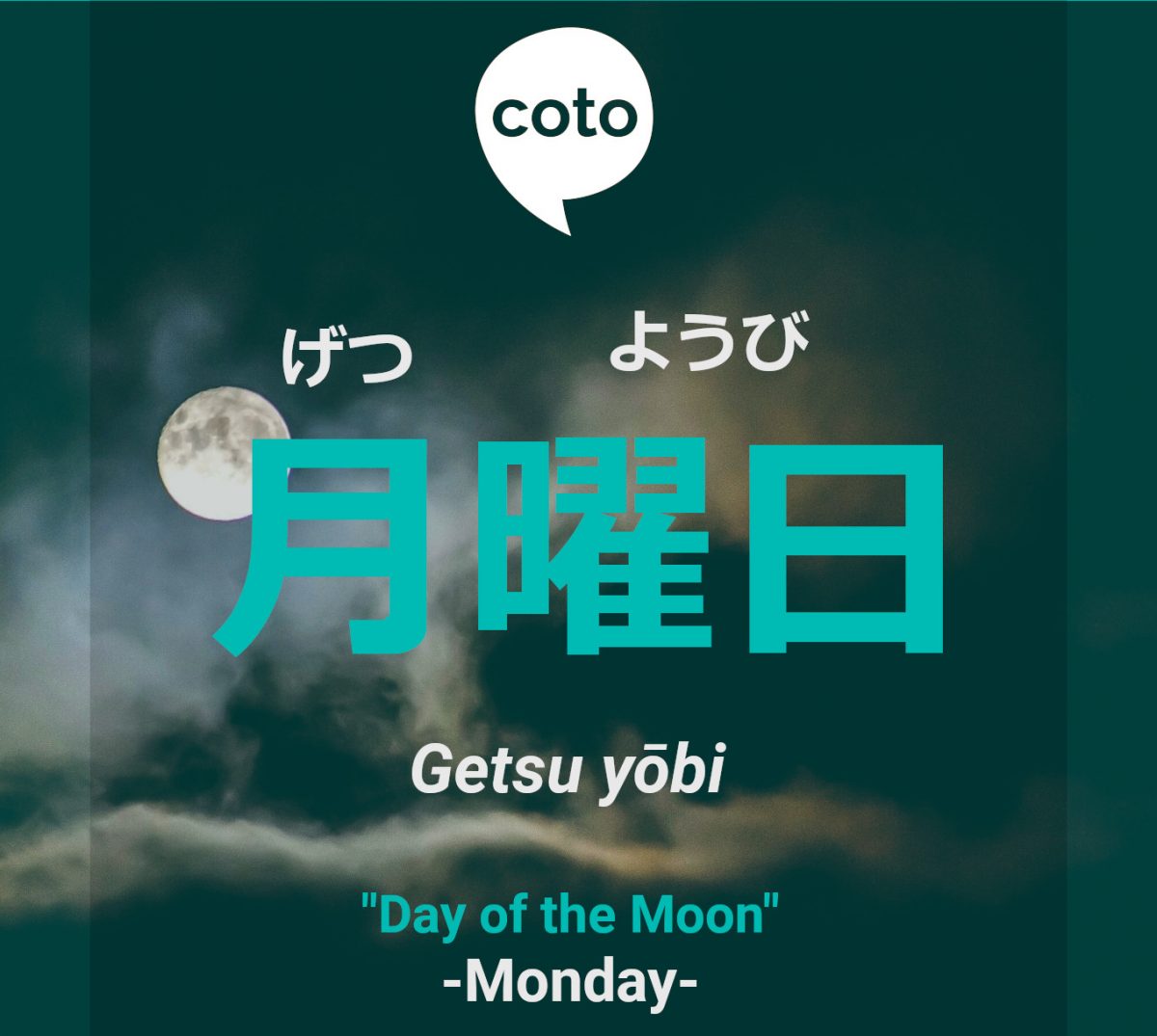
- Prefix: 月 (getsu [げつ] or tsuki [つき])
- Meaning: Moon
- Note: while they both use the same kanji, usually “getsu” (and sometimes “gatsu” [がす]) means month, using “moon” as a period of time (e.g. “many moons ago”). “Tsuki” means moon in a more literal sense. In this context, the word is pronounced as “getsu” yet still means moon. Also, it is common to see this word written without the 日 at the end, instead using 月曜.
Tuesday
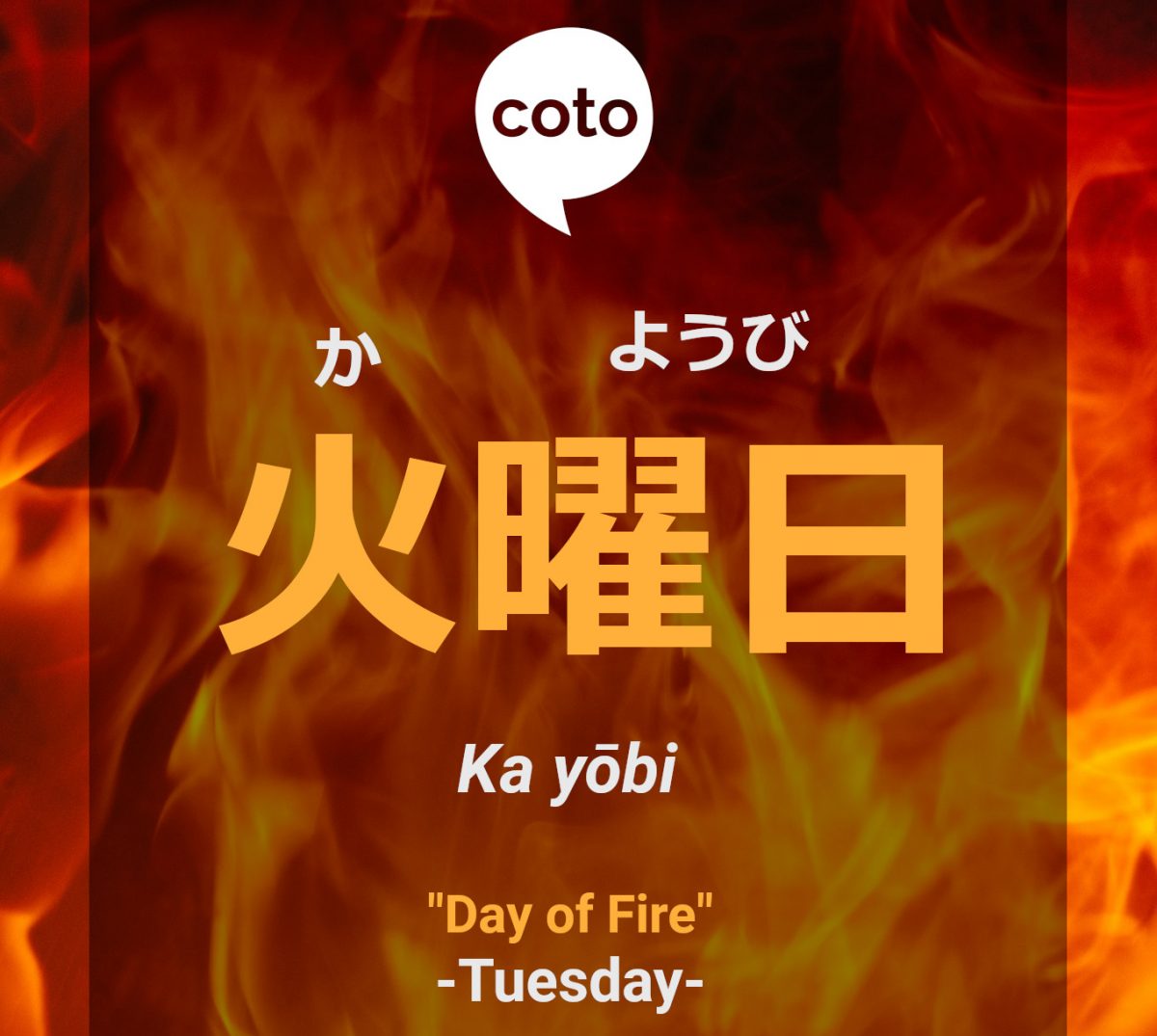
- Prefix: 火 (ka)
- Meaning: Fire
- Note: 火 is usually pronounced as “hi” but is pronounced as “ka” when used in Tuesday.
Wednesday
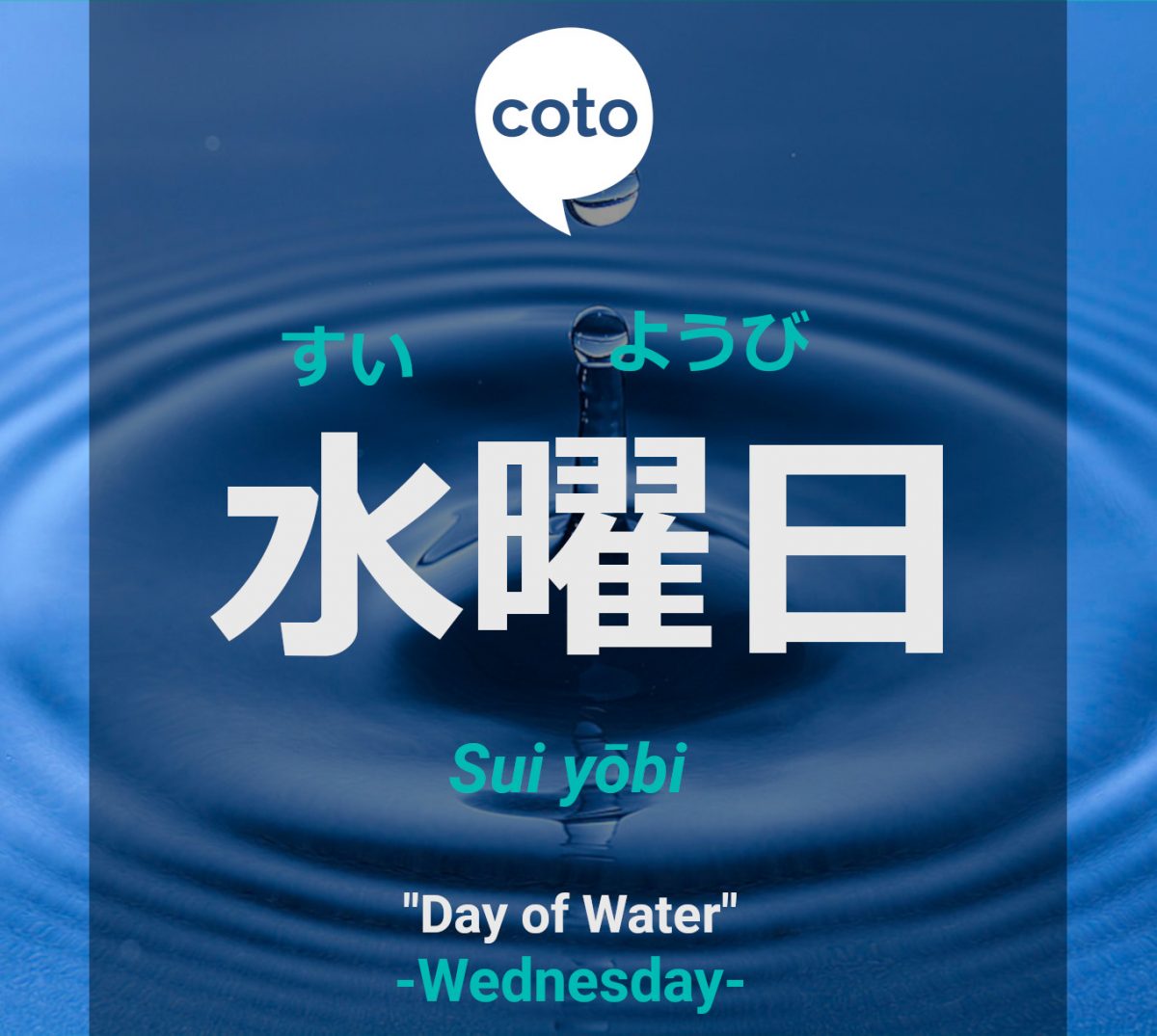
- Prefix: 水 (mizu)
- Meaning: Water
- Note: the kanji by itself is pronounced “mizu“, but is pronounced “sui” when used in conjunction with the 曜日 suffix.
Thursday
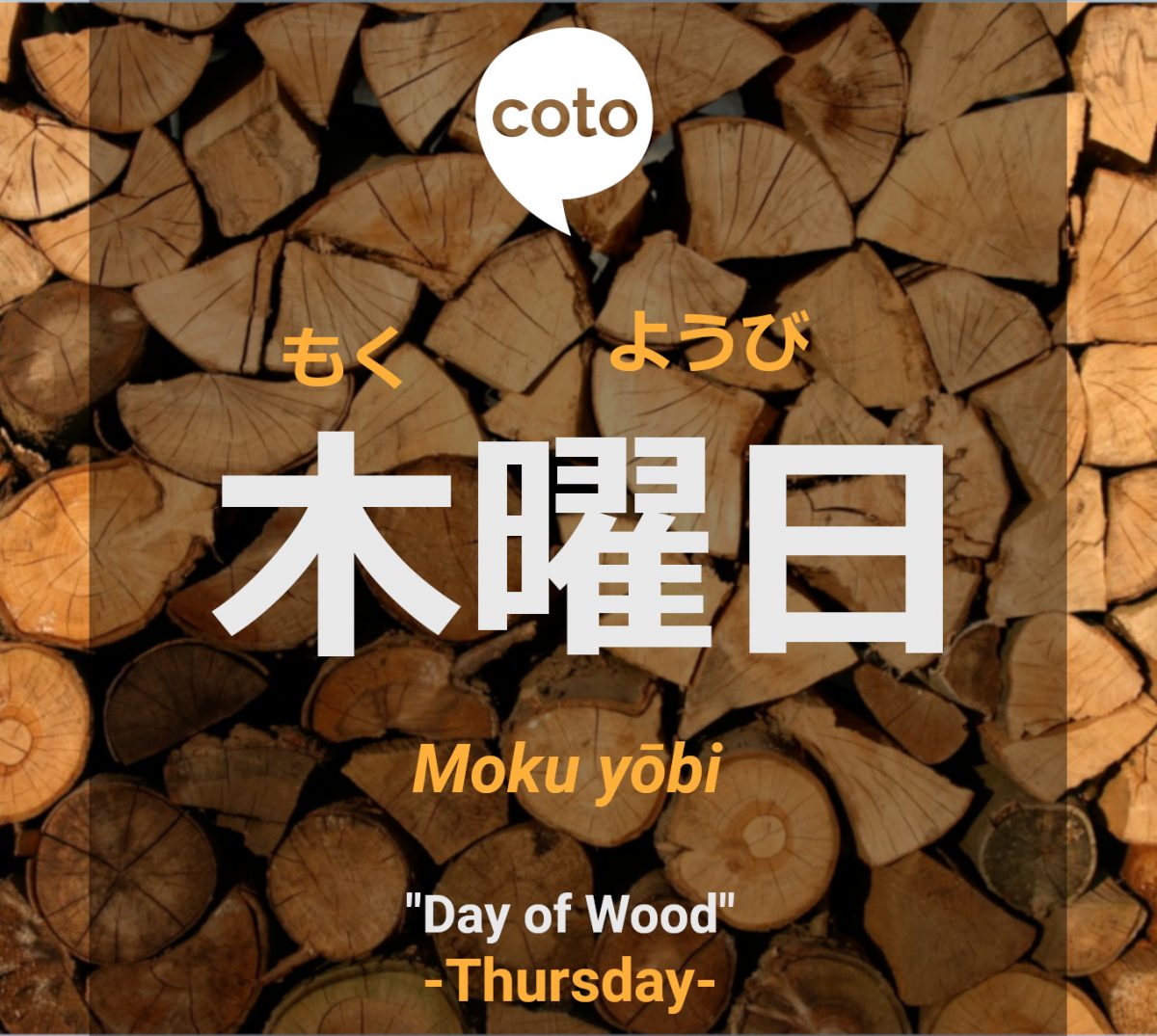
- Prefix: 木 (ki)
- Meaning: Tree or wood
- Note: like 火 and 水, 木 is pronounced “ki” when used by itself but takes on the sound “moku” when used here.
Friday
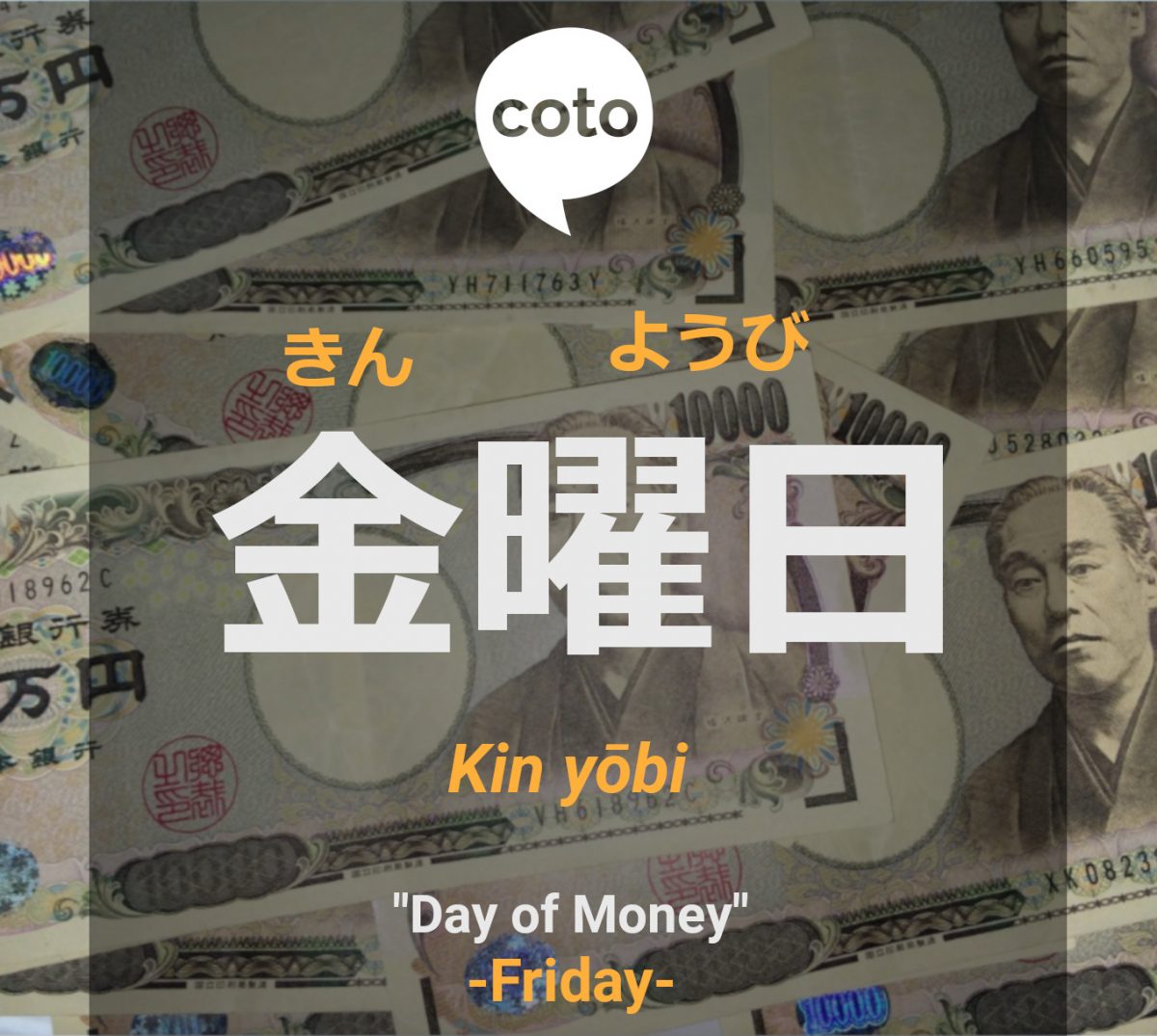
- Prefix: 金 (kane)
- Meaning: Money or metal
- Note: once again, 金 usually has different pronunciations depending on what it’s used with. Usually pronounced “kane” by itself, it is shortened to “kin” when used here as a day-of-the-week kanji.
Saturday
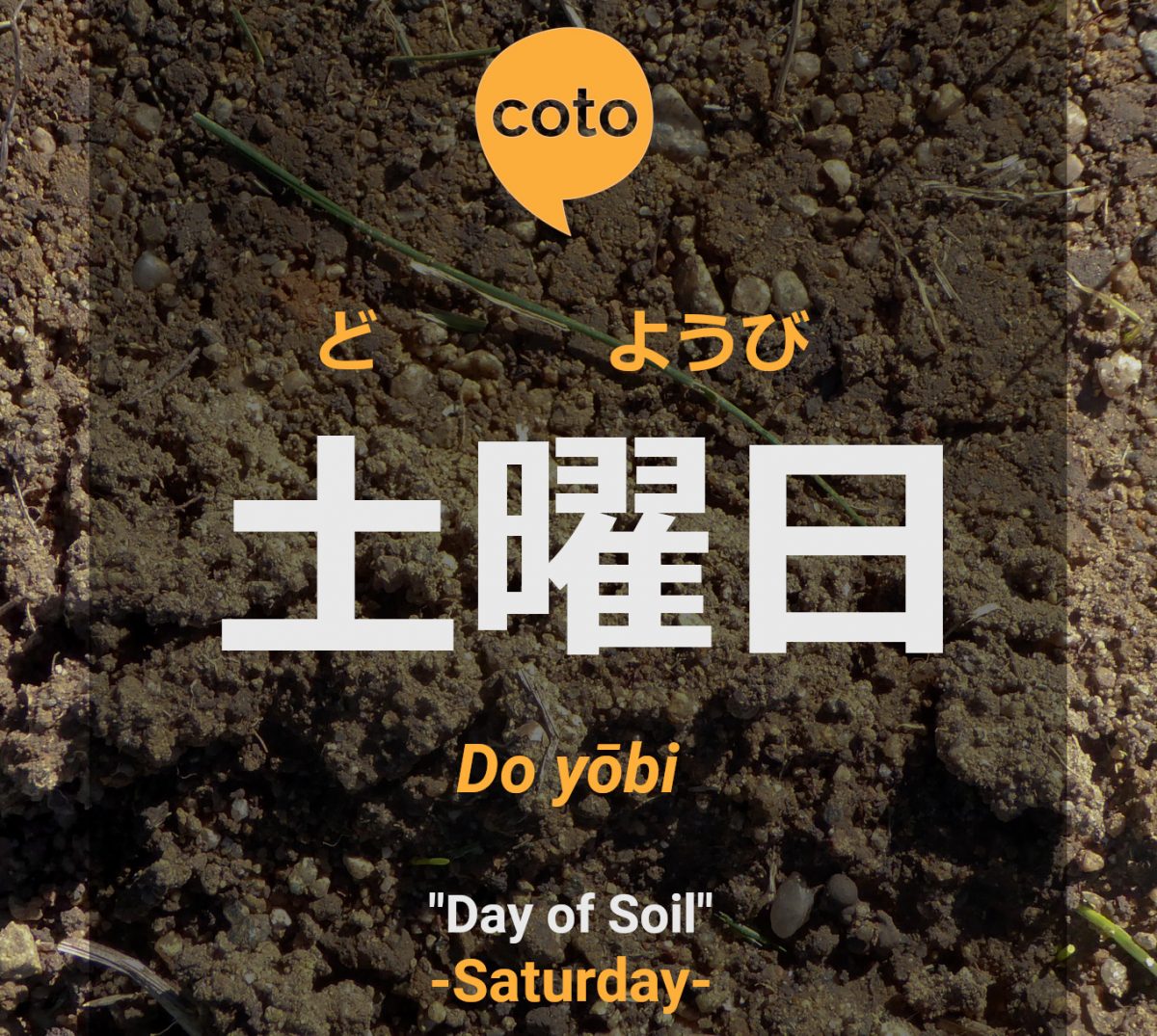
- Prefix: 土 (do)
- Meaning: Soil or earth
- The meaning of 土 as earth is in reference to physical earth, like soil. Not to be confused with 地球, or Earth as the planet. The kanji is pronounced “tsuchi” (つち) by itself.
Asking the Day
Next, if time has passed you by and you don’t remember the day, how do you ask someone on the street? Let’s take a look at this interaction.
テイム: すみません, 何曜日ですか。
警察官: 今日は__曜日です。
テイム: ありがとうございます。
Teimu: Sumimasen, nan’yōbidesuka.
Keisatsukan: Kyō wa __ yōbidesu.
Teimu: Arigatōgozaimasu.
Tim: Excuse me, what day of the week is it?
Police officer: It is __day.
Tim: Thank you very much.


